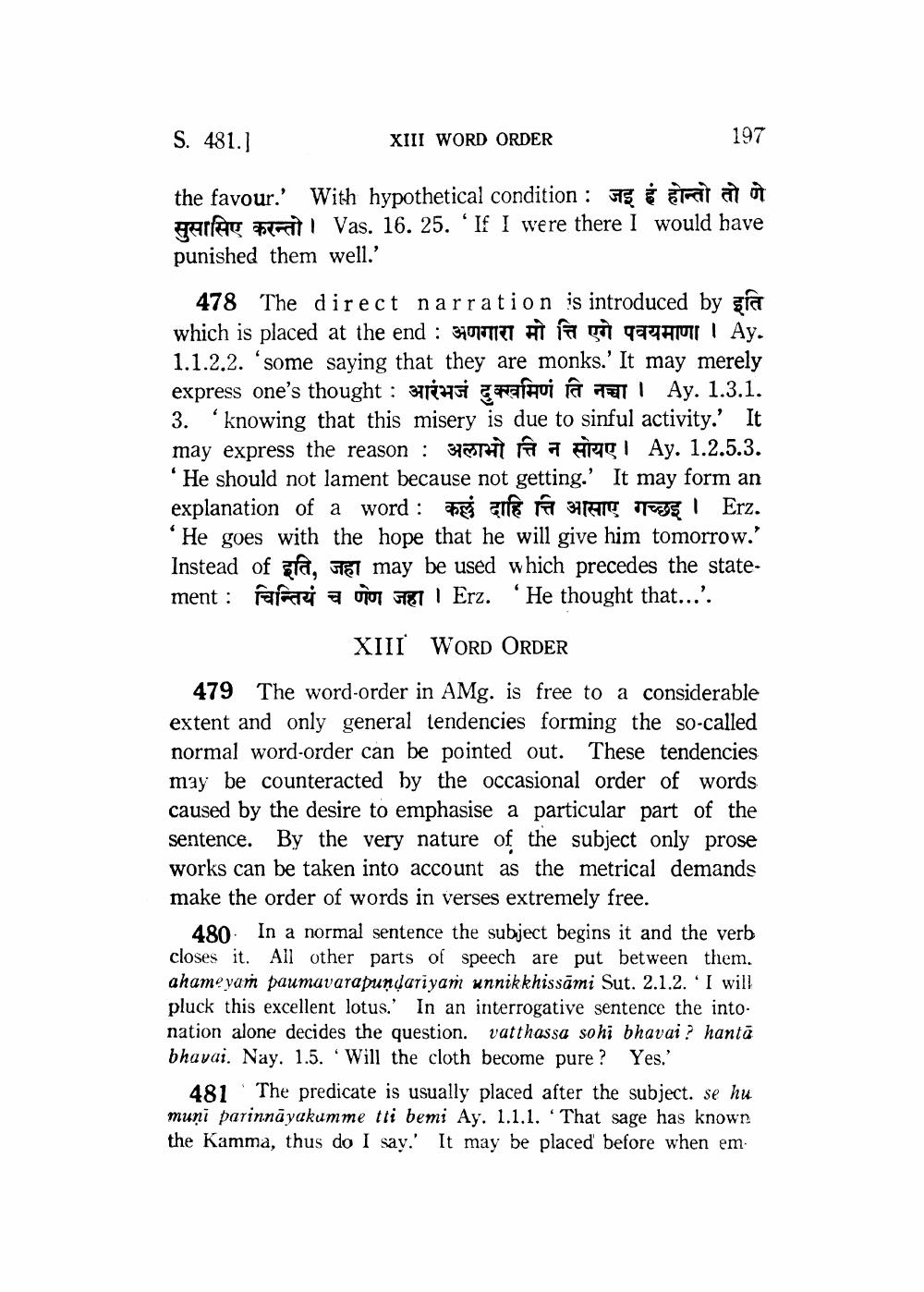________________
S. 481.]
XIII WORD ORDER
197
the favour.' With hypothetical condition : f ta ot Harlat periti Vas. 16. 25. 'If I were there I would have punished them well.'
478 The direct narration is introduced by gfa which is placed at the end : अणगारा मो त्ति एगे पवयमाणा । Ay. 1.1.2.2. ‘some saying that they are monks.' It may merely express one's thought : BiH fHUI Ô TI Ay. 1.3.1. 3. 'knowing that this misery is due to sinful activity.' It may express the reason : 37077 FROI Ay. 1.2.5.3.
He should not lament because not getting. It may form an explanation of a word : कलं दाहि ति आसाए गच्छइ । Erz. 'He goes with the hope that he will give him tomorrow.' Instead of spa, we may be used which precedes the statement: Fellorar a vo FFET I Erz. 'He thought that...'.
XIII WORD ORDER
479 The word-order in AMg. is free to a considerable extent and only general tendencies forming the so-called normal word-order can be pointed out. These tendencies may be counteracted by the occasional order of words caused by the desire to emphasise a particular part of the sentence. By the very nature of the subject only prose works can be taken into account as the metrical demands make the order of words in verses extremely free.
480 In a normal sentence the subject begins it and the verb closes it. All other parts of speech are put between them. ahamo vam paumavarapundariyam unnikkhissāmi Sut. 2.1.2. I will pluck this excellent lotus.' In an interrogative sentence the intonation alone decides the question. vatthassa sohi bhavai ? hantā bhavai. Nay. 1.5. Will the cloth become pure? Yes.'
481 The predicate is usually placed after the subject. se hu muni parinnāyakumme tti bemi Ay. 1.1.1. “That sage has known the Kamma, thus do I say.' It may be placed before when em




